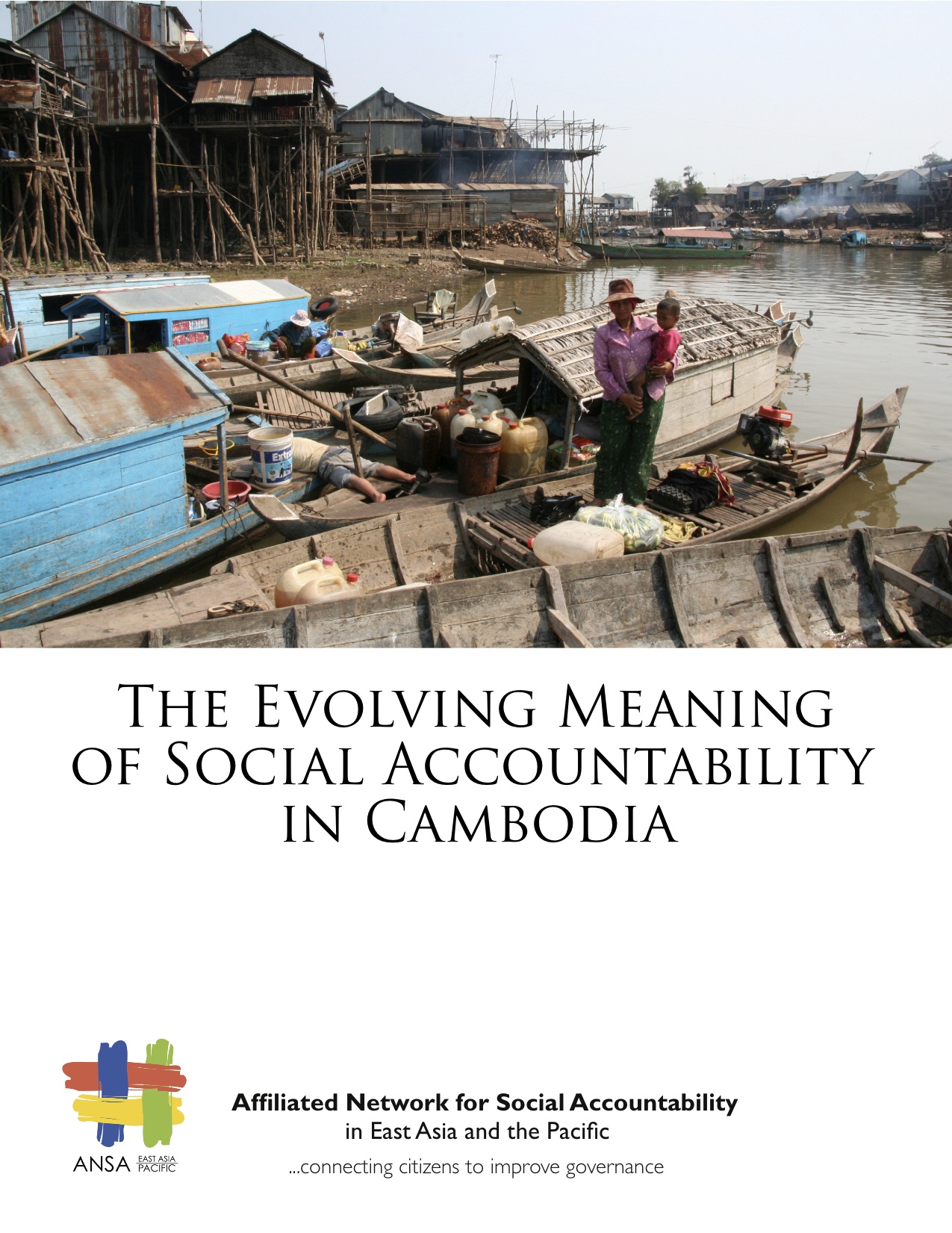 What is the nature of social accountability (SAc) in Cambodia?
What is the nature of social accountability (SAc) in Cambodia?
This study has sought to answer this question through different means: (1) reviewing related literature that sheds light on Cambodia’s historical context, political culture and institutions, citizen-state relations, and the nature civil society in the country; (2) exploring Khmer vocabulary on social accountability; and (3) interviewing key informants from civil society organizations, the government, and the private sector in Phnom Penh, Kompong Speu, Siem Reap, and Battambang provinces.
From the reviewof available literature and interviews with key informants, the term social accountability, kanak neiyapheap sangkhum, is a relatively new concept in Cambodia that is poorly understood by the general public. Among the reasons cited for this lack of understanding is the dearth of experiences in the country of a responsible and accountable state; and the retarded development of effective state or intermediary institutions as a result of Cambodia’s recent history of protracted conflict and violent transitions.
Kanak neiyapheapsangkhum (social accountability) is primarily understood as responsibility, honesty, and transparency. Its meaning is closely linked to the moral responsibility (ka tortuol khos trov prorkorb doy thor) and obligation of leaders to respond to the needs of the people.
In Cambodian political culture, power is not shared but largely rests on individuals or groups instead of state institutions. As such, SAc between the rulers and the ruled remains weak and blurred.
In recent years, however, social accountability has moved to the forefront of both the Cambodian government’s and donor community’s reform agenda, particularly those that focus on good governance, poverty reduction, and democratic development. In fact, the Royal Government of Cambodia (RGC) has actively initiated the process of decentralization to develop democratic, participatory, accountable, and effective institutions of government at the provincial/municipal, district/khan, and commune/sangkat levels.
Different stakeholders have varying perceptions of social accountability. Some are very skeptical that it could ever be applied in Cambodian society, given the existing context of political patronage and control of the dominant political party. Other stakeholders, on the other hand, see the evolving concept of SAc as an opportunity to build trust between state and the citizenry.
This study has also provided a partial list of current SAc practices and tools utilized by civil society organizations, donors, the private sector, and the government. These mechanisms are helping to alter, albeit slowly, the cultural and political landscape of Cambodia. They are also shaping the evolving meaning and understanding of social accountability.
